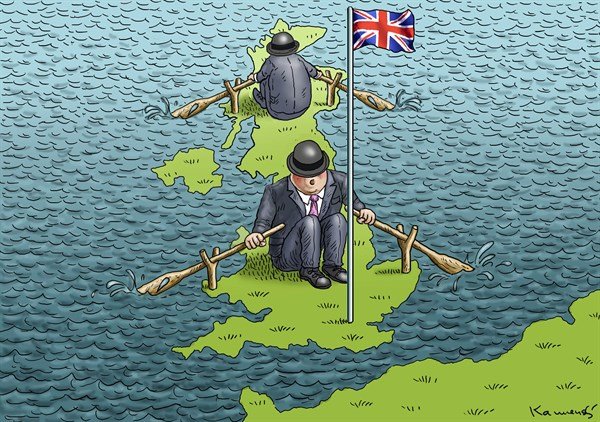Britain and EU trade insults over musician visas
mainThe British Government has sent the following version of events to all who signed a petition calling for musicians to be allowed to perform in the EU and the UK without having to obtain work permits. This is the UK story:
During our negotiations, we proposed measures to allow creative professionals to travel and perform in both the UK and EU, without needing work-permits. Unfortunately, the EU rejected these proposals.
The UK Government supports ambitious arrangements for performers and artists to be able to work and tour across Europe. In the negotiations with the EU, we were determined to get a good deal for British music because we recognise the value of this industry.
As negotiations began, we consulted extensively with the sector to find out what they needed from the negotiations. We listened to the experts in British music, including bodies like the Musicians Union, and reflected their views in our proposal to the EU.
During our negotiations with the EU, we sought a mutually beneficial agreement that would have allowed performers to continue performing across the continent without the need for work permits. Specifically, we proposed to capture the work done by musicians, artists and entertainers, and their accompanying staff through the list of permitted activities for short-term business visitors. This was a straightforward solution for our creative industries which would have benefited all sides.
The EU turned down our proposals on the basis that musicians were providing a service which they viewed as necessitating a work permit and/or visa.
This outcome is regrettable, however there is scope to return to this issue in the future should the EU change its mind. Meanwhile the UK Government will make the case for arrangements that make touring easier in the EU and also seek to signpost to guidance which will help UK business travelers navigate individual Member States’ immigration systems.
The UK remains open for musicians to tour here. Musicians and artists (and technical staff) traveling to the UK from non-visa national countries, which includes but is not limited to EU nationals, are able to carry out a number of activities relating to the music and touring industry without a visa. Visiting musicians to the UK may perform at events, make personal appearances, take part in competitions, promotional activities and auditions, for up to 6 months without the need for formal sponsorship or a visa if they are not being paid beyond expenses or prize money. They can also receive payment for appearances at permit free festivals for up to 6 months, or for up to one month for a specific engagement. Musicians and support staff who are being paid in the UK may also qualify for entry under the Tier 5 Creative Worker route, if they are sponsored by a UK entity licensed with UK Visas and Immigration for this purpose. Entry is for up to 12 months and the relevant rules also provide for accompanying dependents. Entry under the Tier 5 Creative Worker route is visa-free for non-visa nationals where entry is for no more than three months.
The deal delivers on the Government’s promise to take the UK out of the EU’s customs territory and to regain control of our borders. This means there will be new customs processes on goods headed from GB into the EU and vice versa. These processes ensure that customs authorities remain able to protect their regulatory, security and financial interests. As part of this, ATA Carnets can be used for temporary imports of some goods, including professional equipment, as an alternative to facing full customs controls. This is already an option for temporary goods movements from the UK to many other non-EU countries. It reflects the established international approach in line with the ATA and Istanbul Conventions.
The Government recognises the importance of touring for UK musicians and other creative professionals, and has engaged extensively with the creative industries and arts sector since the announcement of the Trade and Cooperation Agreement to ensure they are aware of the new requirements. Going forward, we will continue our close dialogue with the creative and cultural sectors to ensure that they have the support they need to thrive.
We are also taking all steps we can to make the new processes as straightforward as possible for UK artists performing across the continent. Through negotiations with the EU we secured Transparency and Procedural Facilitation measures that will help ensure visa processes are as prompt and smooth as possible. The Agreement also contains provisions that promote efficient customs arrangements and we are working to make it easier to apply for and use ATA Carnets.
Furthermore, the Government is taking unprecedented action to help the music sector during the crisis. We’ve provided £1.5 billion of direct support for arts across the UK, the biggest one off investment ever, and a sum that far exceeds what’s been provided in other countries. That builds on billions more coming from furlough, the self-employed income support scheme and other government support.
Department for Digital, Culture, Media and Sport
The EU’s Brexit negotiator Michel Barnier said yesterday the result was one of the ‘inevitable consequences’ of Brexit.
‘I very much regretted that the British didn’t have more ambition for people’s mobility,’ he told reporters. ‘From last March, we made fairly ambitious proposals in terms of mobility, including for specific categories such as journalists, performers, musicians and others,” he went on. “But you need to be two to make a deal.’
The truth probably lies somewhere in between, at the bottom of the Channel.
For musicians, Brexit is, at this point, a disaster.






Comments